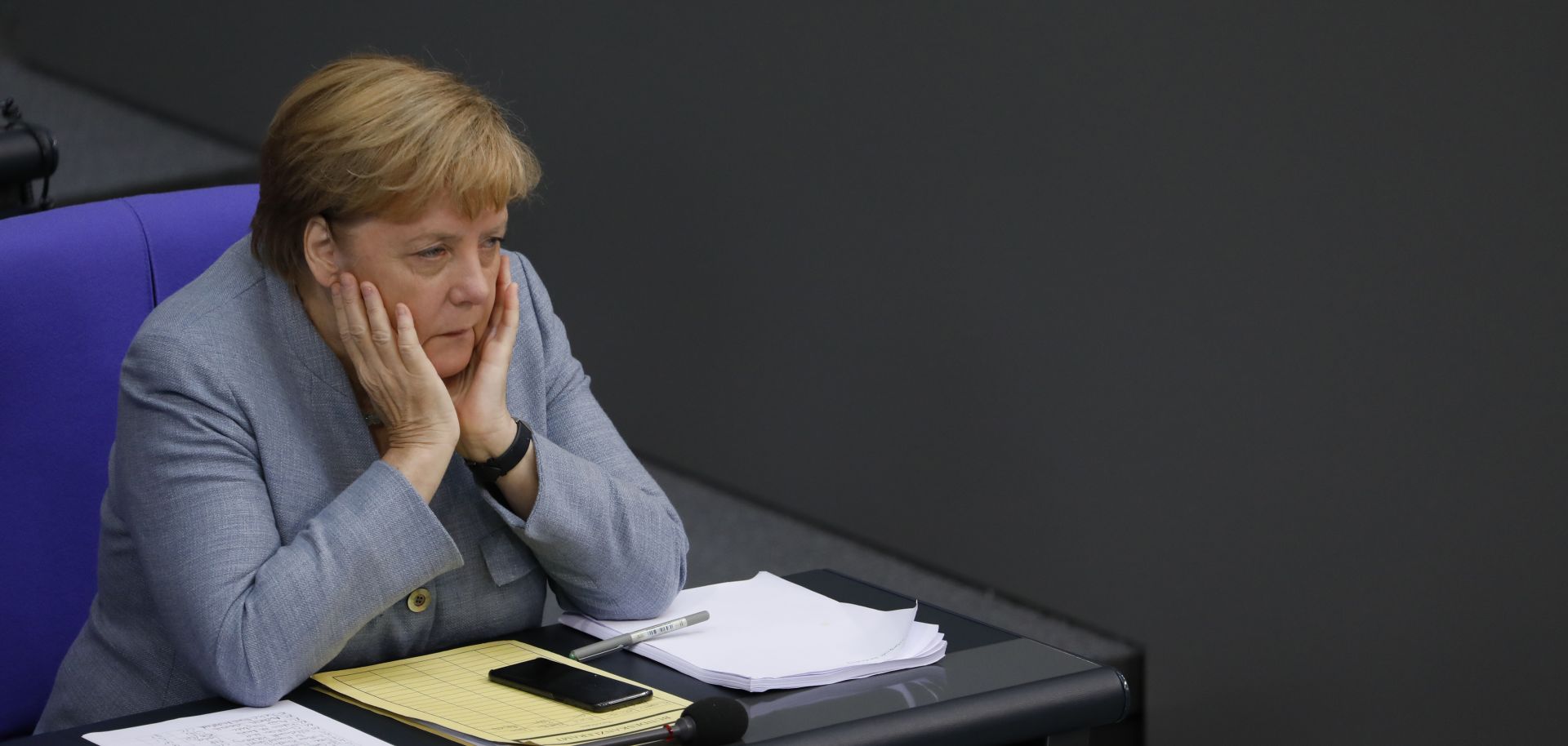ASSESSMENTS
Money Alone Won't Solve Germany's Economic Problems
Sep 13, 2019 | 10:30 GMT

German Chancellor Angela Merkel (CDU), listens during the first session after summer Vacation of the German Parliament, or Bundestag, which debates the Federal Budget on September 10, 2019 in Berlin, Germany. (Michele Tantussi/Getty Images)
(Michele Tantussi/Getty Images)
Highlights
- Germany's slowing economy will force its government to introduce tax cuts and spending hikes to generate growth.
- But in doing so, Berlin will likely take a more cautious approach by gradually rolling out measures one at a time, instead of a potentially contentious stimulus package that could increase tensions in the country's governing coalition.
- Meanwhile, trade disputes between the United States and China, along with Brexit-related uncertainty and looming U.S. tariffs on EU auto exports, will continue to generate headwinds for the German economy.
Subscribe Now
SubscribeAlready have an account?
